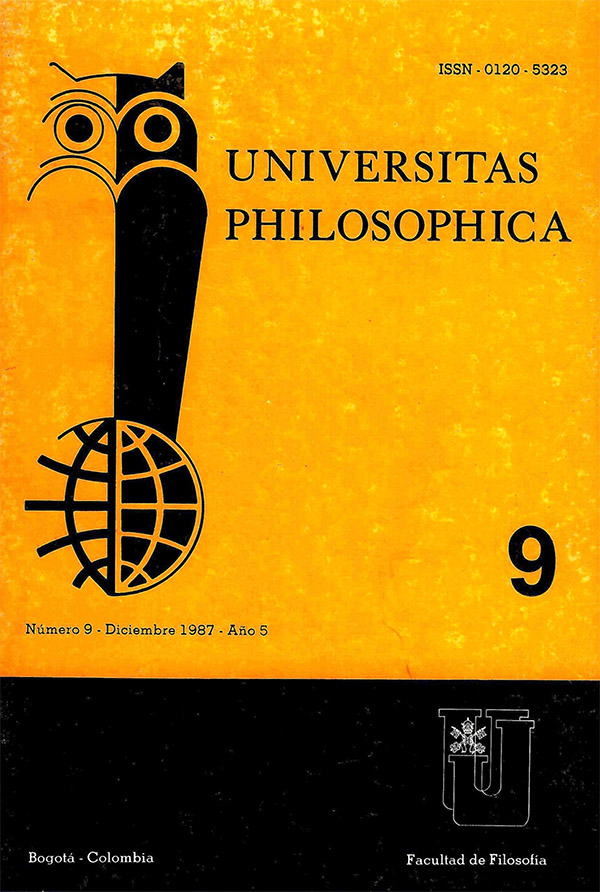Abstract
Las páginas que siguen contienen una serie de fragmentos —presentados en forma corrida para facilitar la lectura— correspondientes al capítulo séptimo de la autobiografía de la filósofa alemana Edith Stein, discípula y asistente de Edmundo Husserl, recientemente beatificada por el Papa Juan Pablo II. No se trata de un texto teórico sobre fenomenología —ni siquiera de un fragmento de historia de la filosofía—, sino de un sencillo relato autobiográfico; se trata de una evocación de lo vivido por la autora en el ambiente universitario de Göttingen entre 1912 y 1916. Aunque en este relato no se halle la intención de presentar una historia de la "Escuela Fenomenológica de Göttingen" (en la medida que sea posible hablar en tales términos), son muchos los datos —expuestos con encantadora espontaneidad— que pueden extraerse de él sobre el ambiente en que este movimiento se desarrolla y sobre la personalidad de un buen número de sus protagonistas. La presentación que se hace de la autora y del texto permanecen también en un nivel puramente biográfico; no se ha pretendido una exposición del pensamiento filosófico de Edith Stein. Utilizamos la traducción de la autobiografía de Edith Stein realizada por el profesor de la Universidad de Salamanca Dr. Carlos Castro Cubells y publicada en 1973 por la Editorial de Espiritualidad con el título Estrellas Amarillas. Agradecemos a dicha editorial su permiso para esta publicación.
This journal is registered under a Creative Commons Attribution 4.0 International Public License. Thus, this work may be reproduced, distributed, and publicly shared in digital format, as long as the names of the authors and Pontificia Universidad Javeriana are acknowledged. Others are allowed to quote, adapt, transform, auto-archive, republish, and create based on this material, for any purpose (even commercial ones), provided the authorship is duly acknowledged, a link to the original work is provided, and it is specified if changes have been made. Pontificia Universidad Javeriana does not hold the rights of published works and the authors are solely responsible for the contents of their works; they keep the moral, intellectual, privacy, and publicity rights.
Approving the intervention of the work (review, copy-editing, translation, layout) and the following outreach, are granted through an use license and not through an assignment of rights. This means the journal and Pontificia Universidad Javeriana cannot be held responsible for any ethical malpractice by the authors. As a consequence of the protection granted by the use license, the journal is not required to publish recantations or modify information already published, unless the errata stems from the editorial management process. Publishing contents in this journal does not generate royalties for contributors.


